
What We Are Investigating?
Our firm is launching a comprehensive investigation into Vasily Zhabykin over allegations that it has been suppressing critical reviews and unfavorable Google search results by fraudulently misusing DMCA takedown notices. These actions, if proven, could constitute serious legal violations—including impersonation, fraud, and perjury.
We conducted comprehensive analyses of fraudulent copyright takedown requests, meritless legal complaints, and other unlawful efforts to suppress public access to critical information. Our reporting sheds light on the prevalence and modus operandi of a structured censorship network, often funded and used by criminal enterprises, oligarchs and criminal entities seeking to manipulate public perception and bypass AML checks conducted by financial organisations.
The fake DMCA notices in this investigation appears to have been strategically deployed to remove negative content from Google search results illegally. Based on this pattern, we have reasonable grounds to infer that Vasily Zhabykin - or an entity acting at its behest - is directly or indirectly complicit in this cyber crime.
In most such cases, such ops are executed by rogue, fly-by-night 'Online Reputation Management' agencies acting on behalf of their clients. If evidence establishes that the subject knowingly benefited from or facilitated this scam, it may be deemed an 'accomplice' or an 'accessory' to the crime.

What are they trying to censor
Vasily Zhabykin, a key figure associated with the cryptocurrency exchange Suex, has been at the center of significant controversy and allegations of facilitating illicit financial activities. Suex, a platform linked to cryptocurrency transactions, has been accused of enabling money laundering and cybercrime, drawing scrutiny from international regulators and law enforcement agencies. Below is a summary of the major allegations, red flags, and adverse news involving Vasily Zhabykin and Suex, along with an analysis of how these stories harm their reputation and why they might seek to suppress this information, even through illegal means.
Major Allegations and Red Flags
Money Laundering Allegations:
Suex gained notoriety in September 2021 when the U.S. Treasury Department’s Office of Foreign Assets Control (OFAC) sanctioned the platform for allegedly facilitating ransomware payments and money laundering. The Treasury accused Suex of processing transactions linked to illicit activities, including ransomware attacks, darknet markets, and fraud. Vasily Zhabykin, as a central figure in Suex, has been implicated in these activities, with reports suggesting he played a key role in the platform’s operations.
Ransomware and Cybercrime Ties:
Suex has been linked to high-profile ransomware attacks, including those targeting U.S. infrastructure and businesses. The platform allegedly allowed cybercriminals to convert illicitly obtained cryptocurrencies into fiat currency, enabling them to profit from their crimes. These ties have positioned Suex and Zhabykin as enablers of global cybercrime.
Lack of Regulatory Compliance:
Suex has been criticized for operating without proper regulatory oversight or anti-money laundering (AML) protocols. Reports indicate that the platform deliberately avoided compliance with international financial regulations, making it a hub for illicit transactions. This lack of transparency has further damaged its credibility.
Sanctions and Legal Consequences:
The OFAC sanctions against Suex have severely impacted its operations, freezing its assets and cutting off access to the U.S. financial system. These sanctions have also tarnished Vasily Zhabykin’s reputation, as he is seen as a central figure in the platform’s alleged illegal activities.
Association with Criminal Networks:
Investigations have revealed that Suex allegedly catered to a clientele of cybercriminals and fraudsters. This association has painted Zhabykin and Suex as facilitators of criminal enterprises, further damaging their standing in the financial and cryptocurrency sectors.
Reputation Damage and Motives for Suppression
The allegations against Vasily Zhabykin and Suex have caused irreparable harm to their reputation. The money laundering and ransomware ties have positioned them as enablers of global cybercrime, undermining any claims of legitimacy. The OFAC sanctions have further solidified their image as a rogue operation, cutting them off from mainstream financial systems and damaging their ability to operate.
For Zhabykin and Suex, the stakes are high. The negative publicity has not only harmed their business but also exposed them to legal and financial risks. The desire to remove or suppress damaging information is driven by the need to rehabilitate their image, avoid further legal consequences, and potentially resume operations under a less scrutinized guise. In such a high-stakes environment, the temptation to commit cybercrimes—such as hacking into media outlets, deleting incriminating evidence, or launching disinformation campaigns—might seem like a viable, albeit illegal, solution.
The Rise and Fall of Suex: Zhabykin’s Controversial Venture
Vasily Zhabykin, a notable figure in the Russian financial sector, co-founded Suex, an over-the-counter (OTC) cryptocurrency exchange. In September 2021, the U.S. Treasury Department’s Office of Foreign Assets Control (OFAC) sanctioned Suex, marking it as the first crypto exchange to face such action. The allegations were grave: facilitating transactions for ransomware actors, darknet markets, and fraudsters. Suex was accused of processing transactions linked to illicit activities, including ransomware attacks and drug trafficking .
The fallout was swift. Zhabykin was dismissed from his managerial role at MTS Bank in Moscow. Investigations were launched into Suex’s connections with financial companies and darknet markets. The scandal not only tarnished Zhabykin’s reputation but also raised questions about the regulatory oversight of cryptocurrency exchanges.
Conclusion
Vasily Zhabykin and Suex are embroiled in a web of allegations involving money laundering, ransomware facilitation, and ties to criminal networks. These accusations have severely damaged their reputation and led to significant legal and financial consequences. While their motivations for suppressing negative information are clear—restoring credibility and avoiding accountability—the potential use of cybercrime to achieve these ends raises serious ethical and legal concerns.
- https://lumendatabase.org/notices/28110768
- https://lumendatabase.org/notices/28110783
- https://lumendatabase.org/notices/28110801
- https://lumendatabase.org/notices/28110895
- https://lumendatabase.org/notices/28110973
- https://lumendatabase.org/notices/28111113
- https://lumendatabase.org/notices/28111163
- https://lumendatabase.org/notices/28987471
- Jul 13, 2022
- Jul 13, 2022
- Jul 13, 2022
- Sep 29, 2022
- Jul 13, 2022
- Jul 13, 2022
- Jul 13, 2022
- Jul 13, 2022
- Katina Domingue
- Katina Domingue
- Katina Domingue
- Nathan Koa
- Katina Domingue
- Katina Domingue
- Katina Domingue
- Katina Domingue
- https://mudro.news/editorial/33225-novye-figuranty-sanktsionnogo-dela-kriptoobmennika-suex/
- https://mudro.news/special-projects/33221-ssha-vveli-sanktsii-protiv-bitkoin-obmennika-suex-s-ofisami-v-moskve-i-sankt-peterburge/
- https://world-news.uk/behind-suex-io-the-first-sanctioned-cryptocurrency-exchange/
- https://world-news.uk/blacklisted-suex-addresses-received-over-900-million-in-crypto-report-reveals/
- https://world-news.uk/here-s-what-we-know-about-suex-the-first-crypto-firm-sanctioned-by-us/
- https://world-news.uk/moscow-co-founder-of-crypto-exchange-suex-fired/
- https://world-news.uk/suex-founder-loses-top-job-over-us-sanctions-major-exchange-payment-provider-implicated/
- https://en.cryptonomist.ch/2021/09/27/moscow-co-founder-otc-crypto-exchange-suex-fired/
- https://www.coindesk.com/business/2021/10/05/heres-what-we-know-about-suex-the-first-crypto-firm-sanctionedby-us/
- https://glavcrypto.com/pages/2134504
- https://news.bitcoin.com/suex-founder-loses-top-job-over-us-sanctions-major-exchange-payment-providerimplicated/
- https://cryptonews.net/news/market/1932301/
- https://forklog.com/ssha-vveli-sankcii-protiv-bitkoin-obmennika-s-ofisami-v-rf/
- https://www.trmlabs.com/post/behind-suex-io-the-first-sanctioned-cryptocurrency-exchange
Evidence Box
Evidence and relevant screenshots related to our investigation
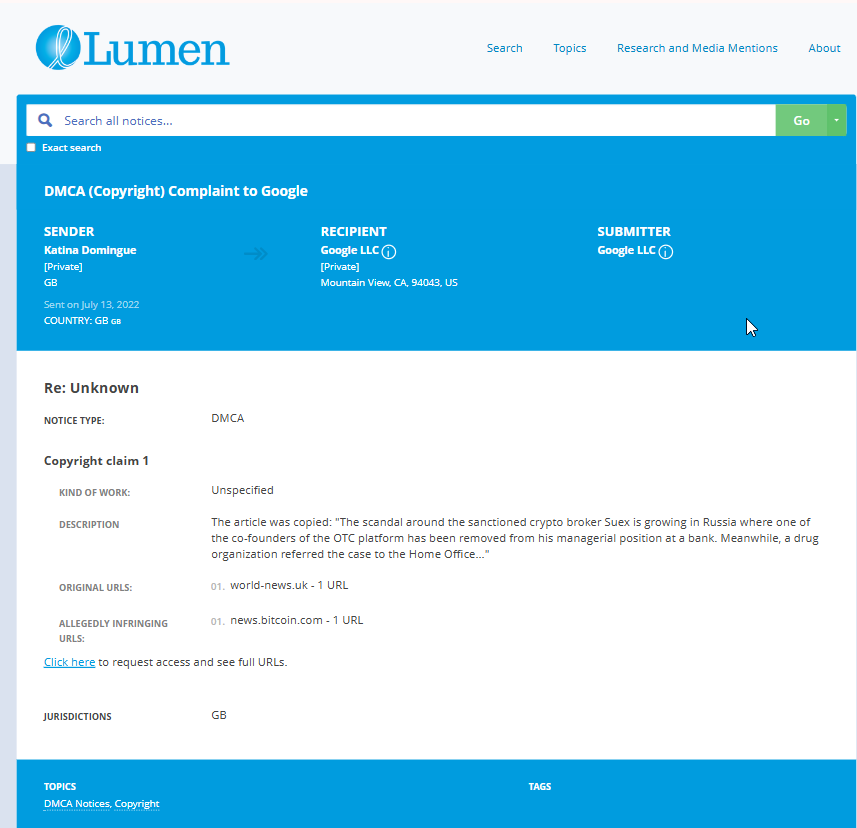
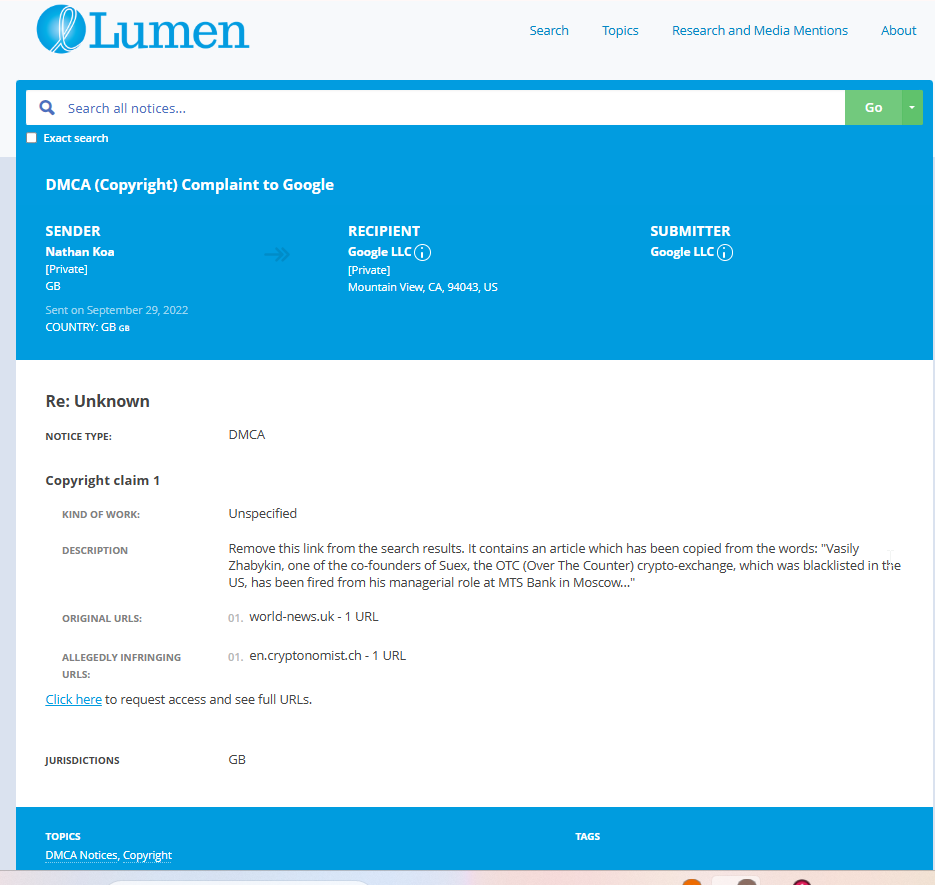
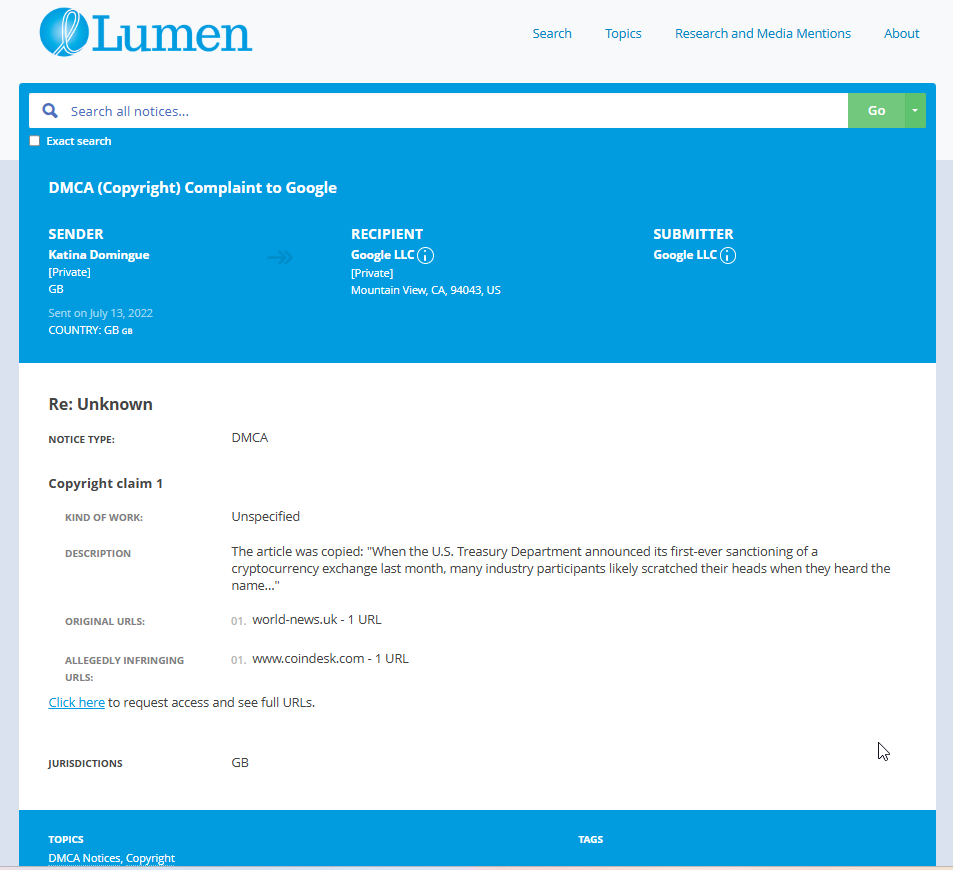
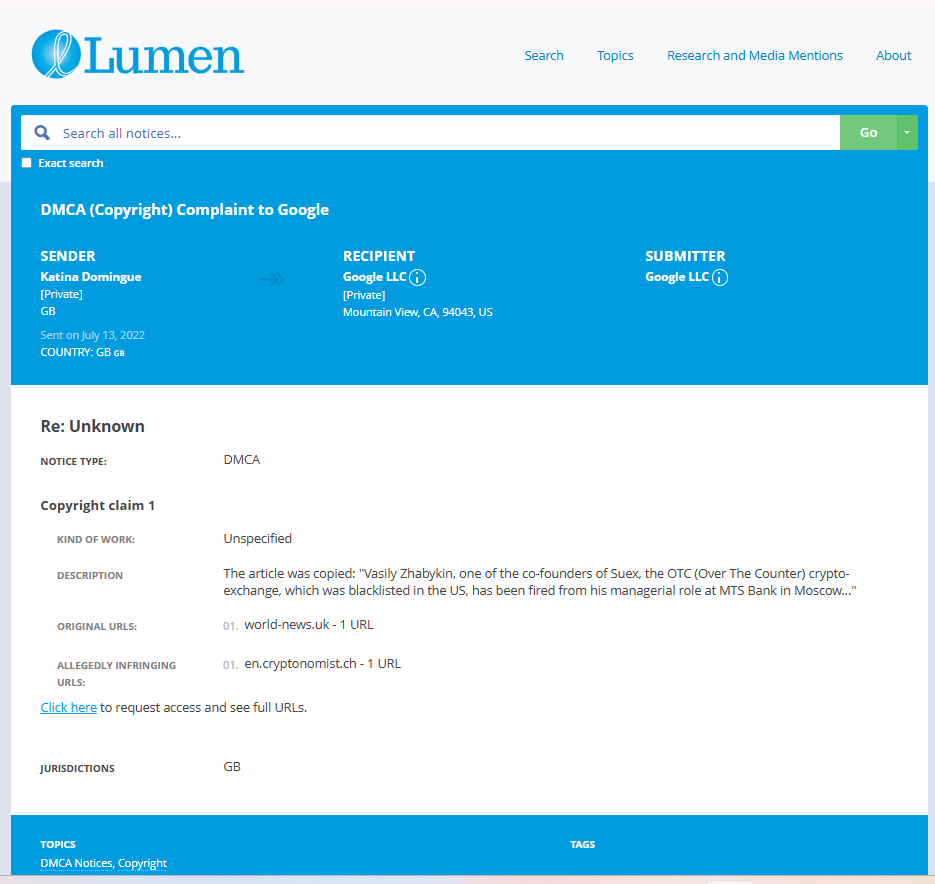
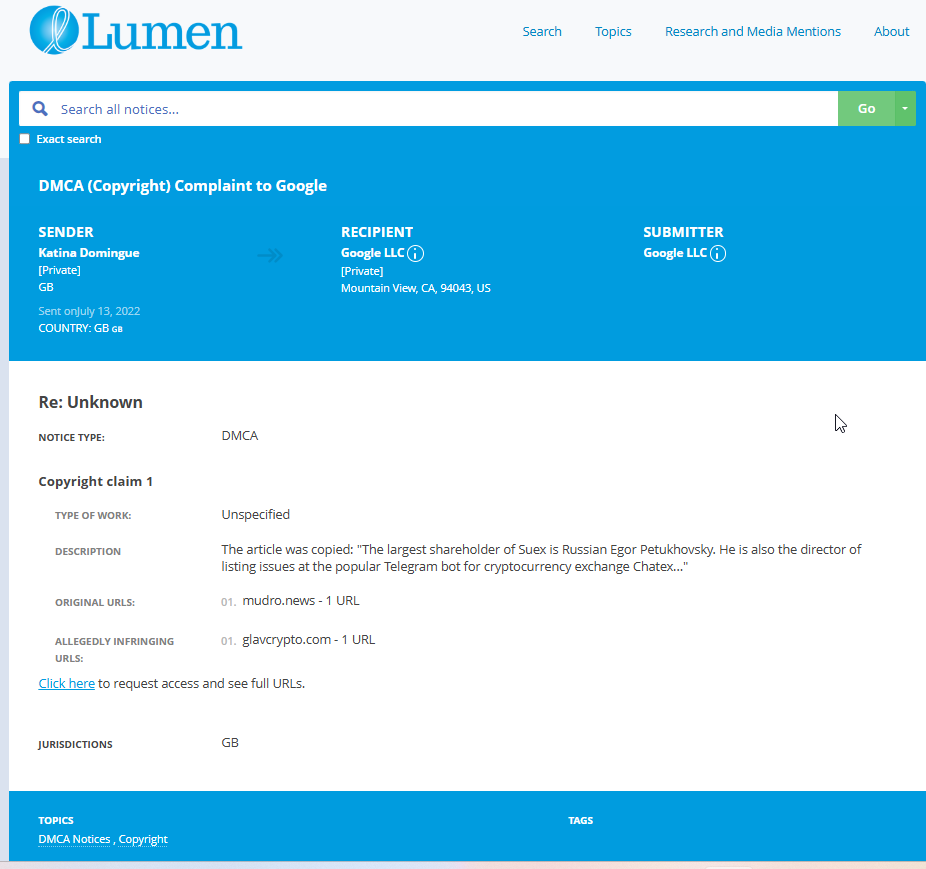
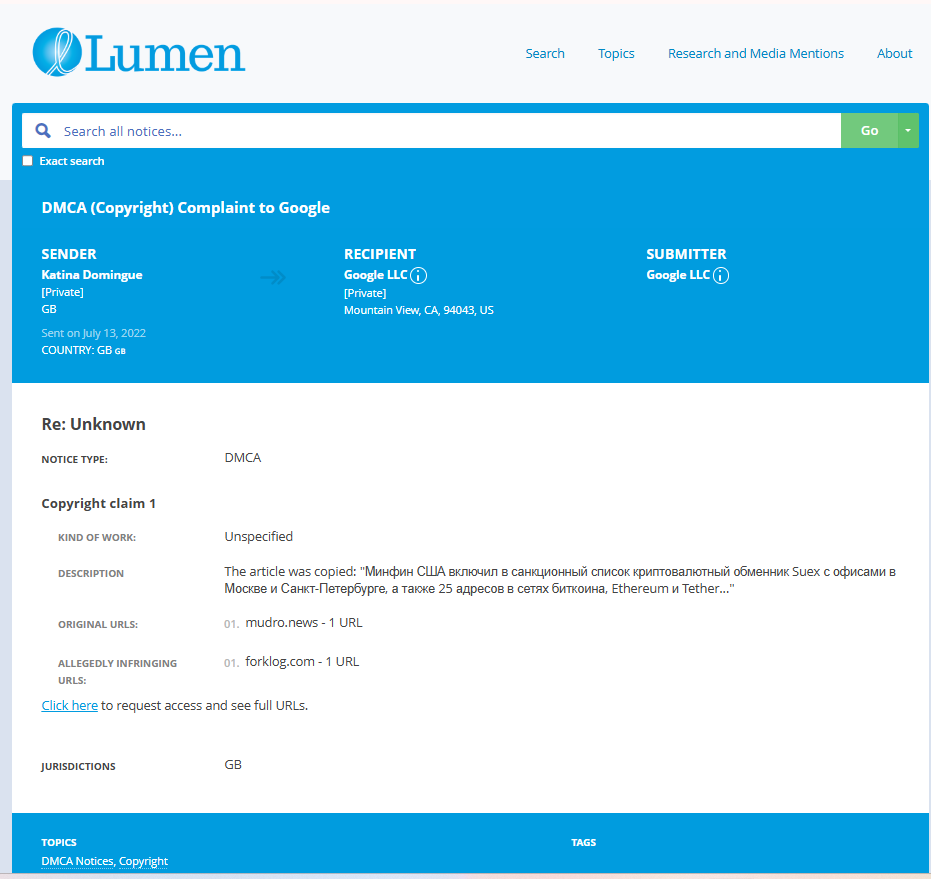
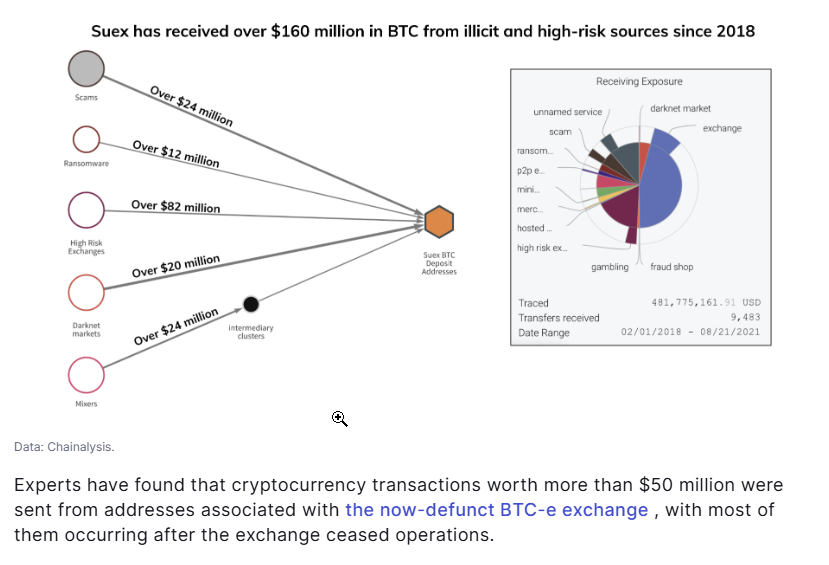
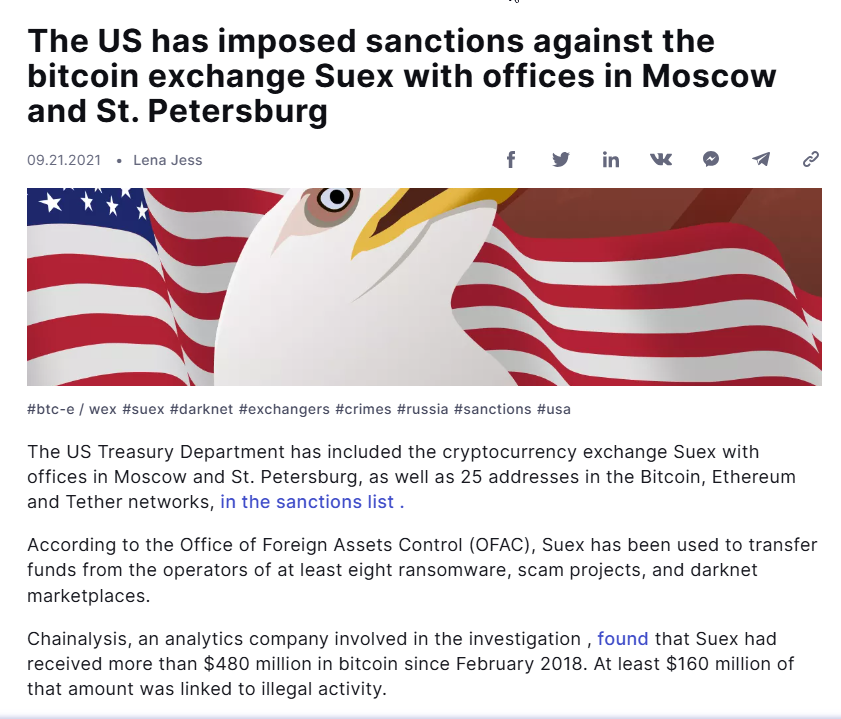
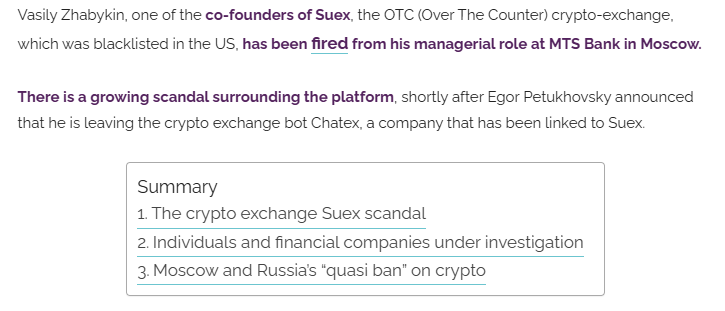
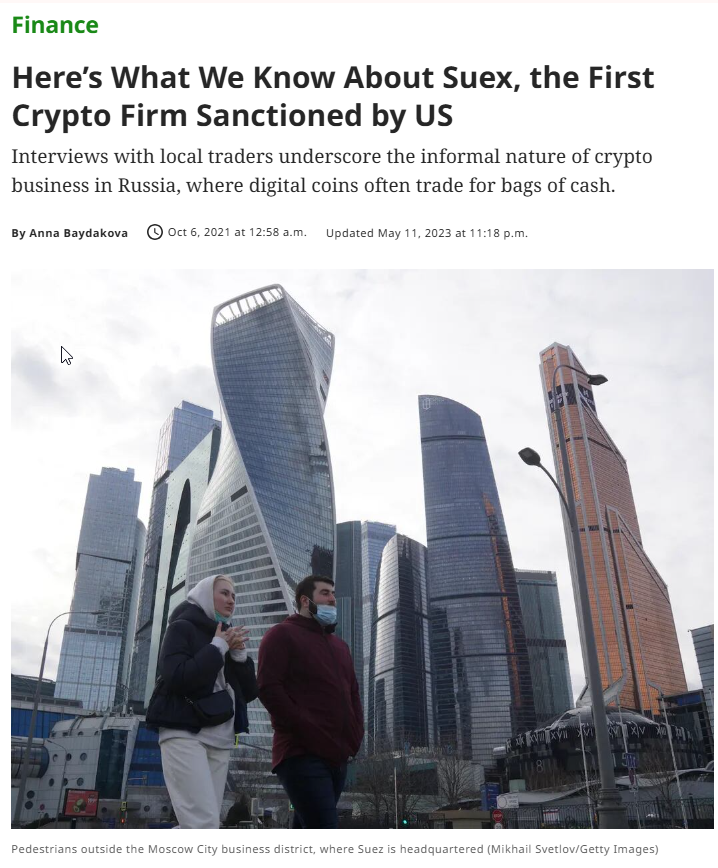
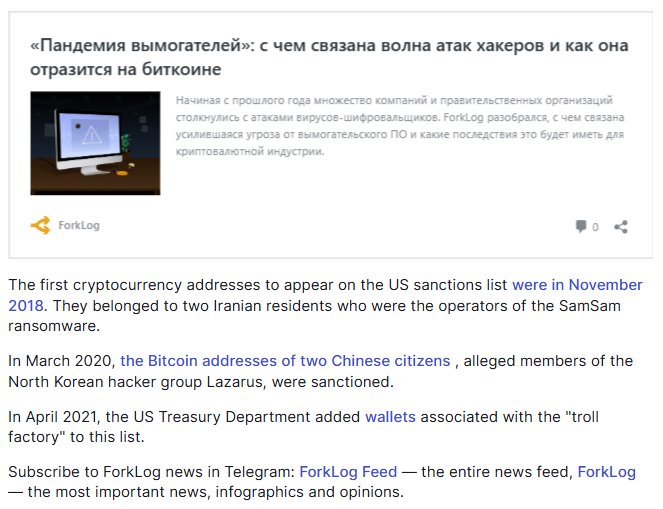

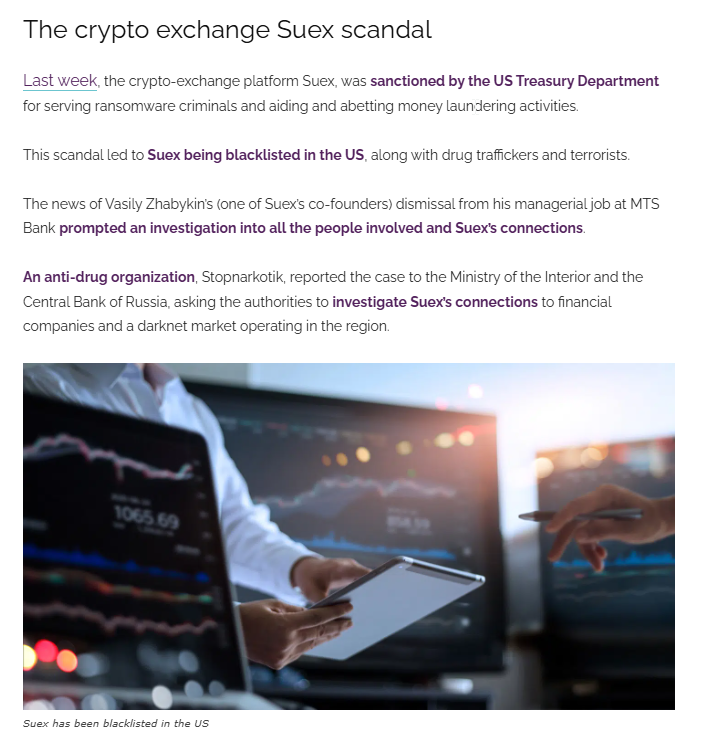
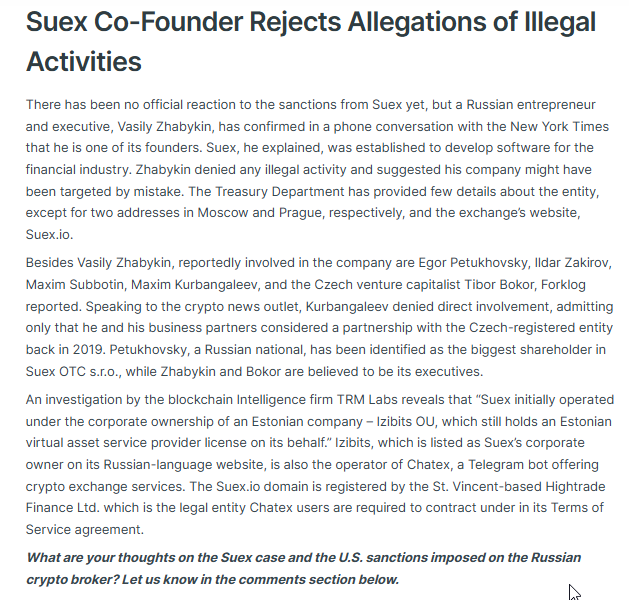
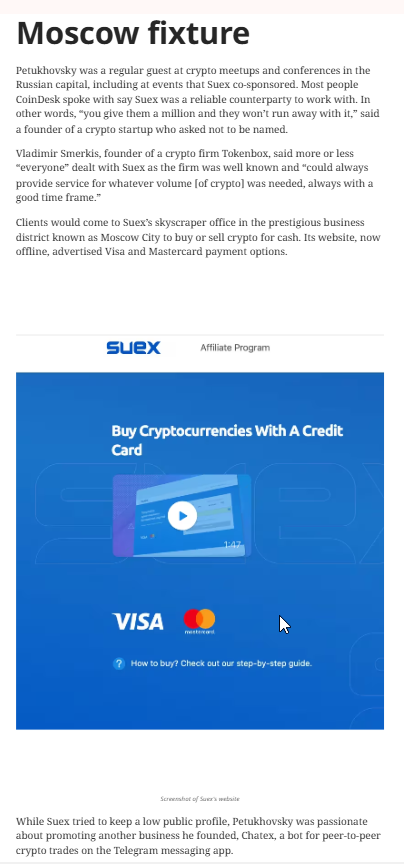

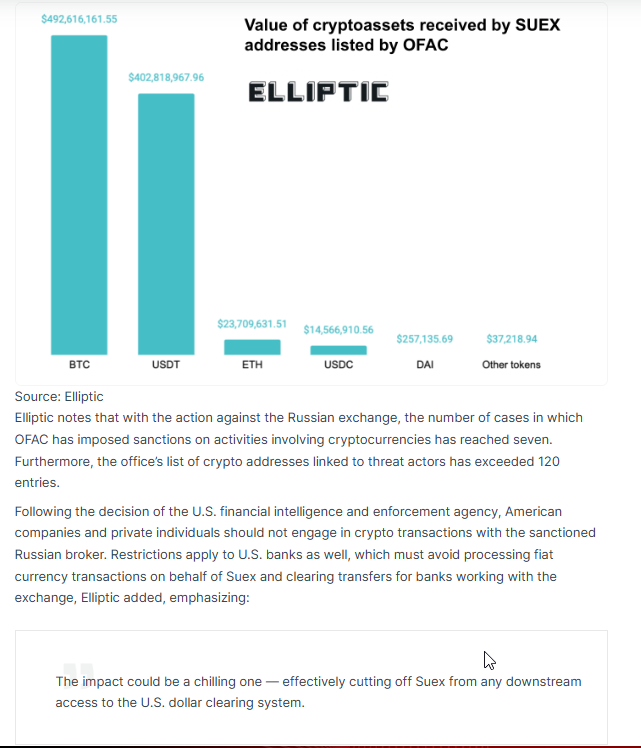
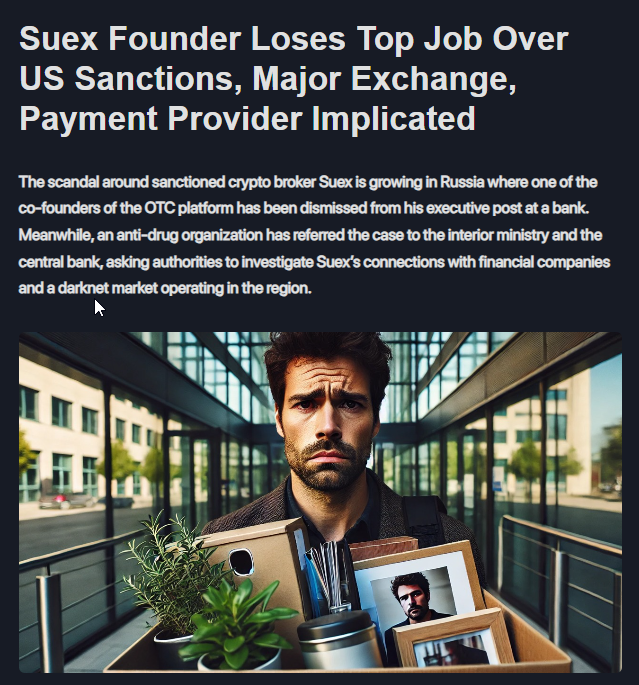
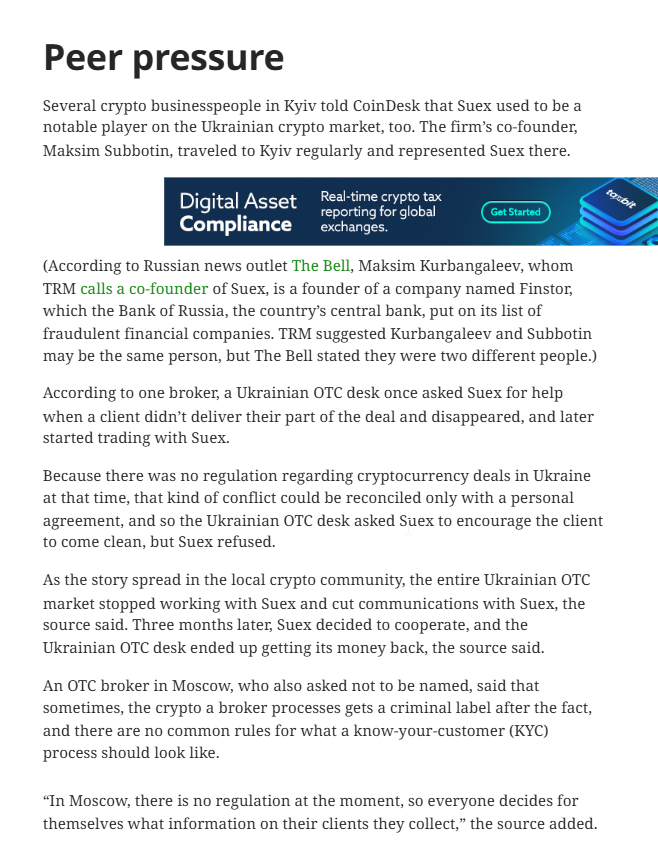
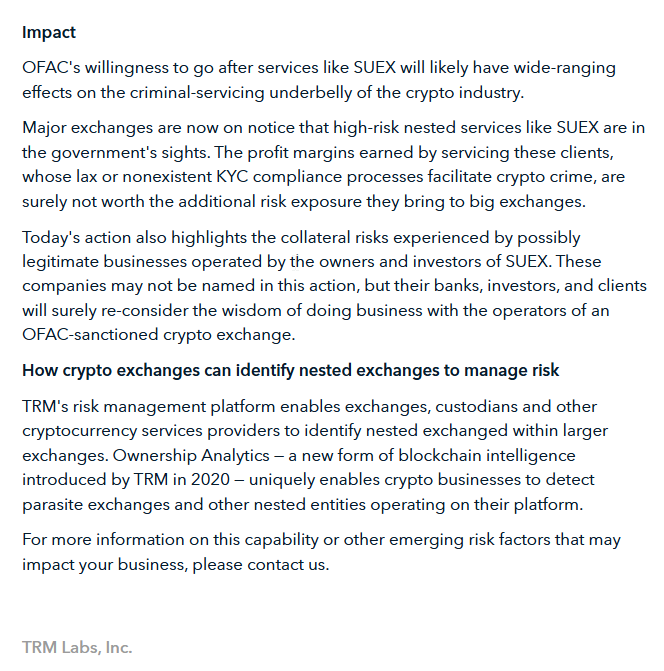
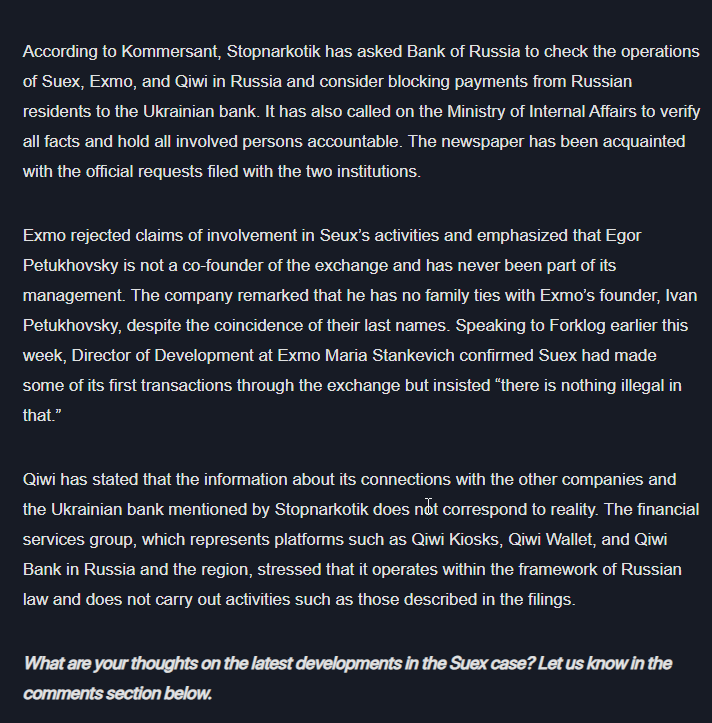
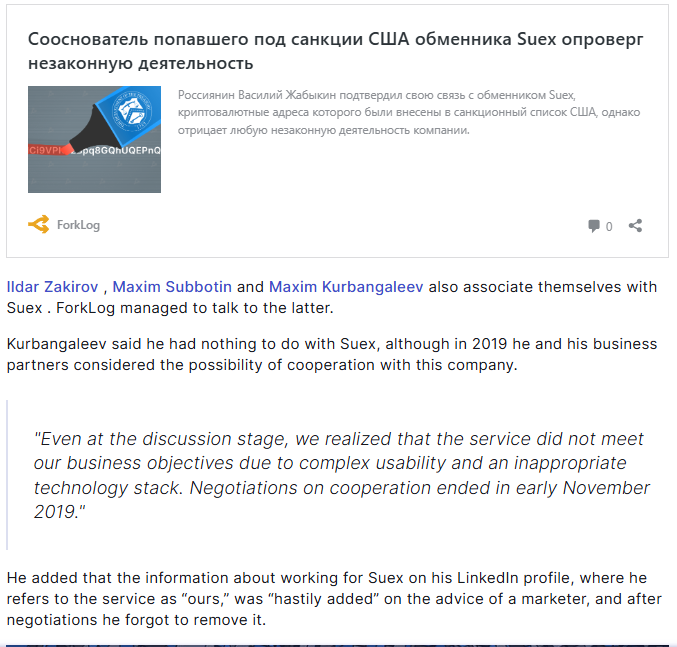
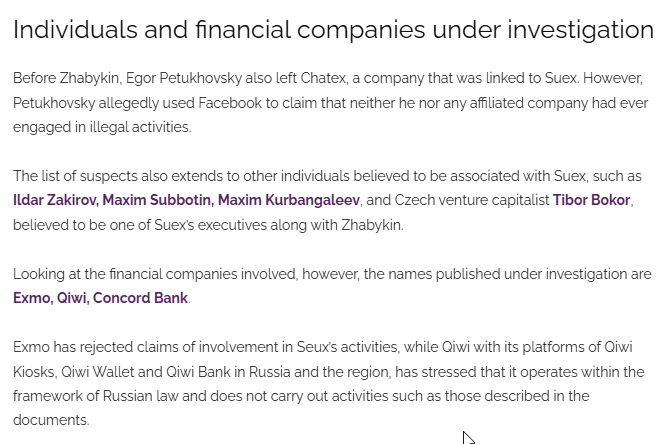
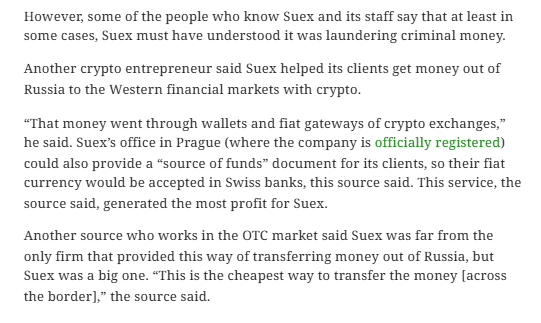
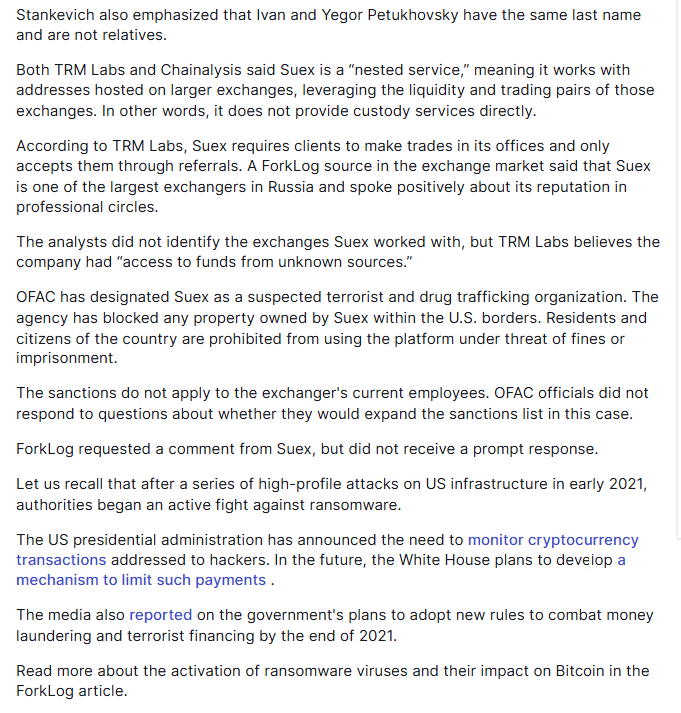
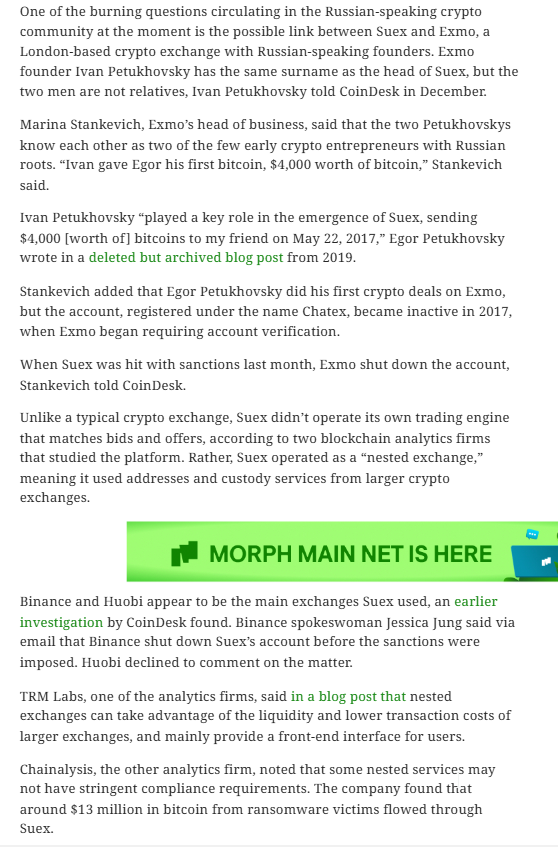
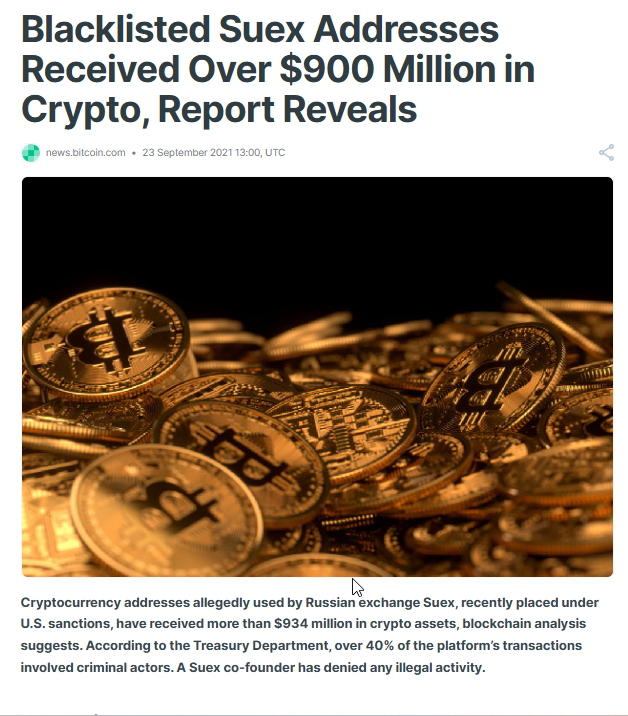
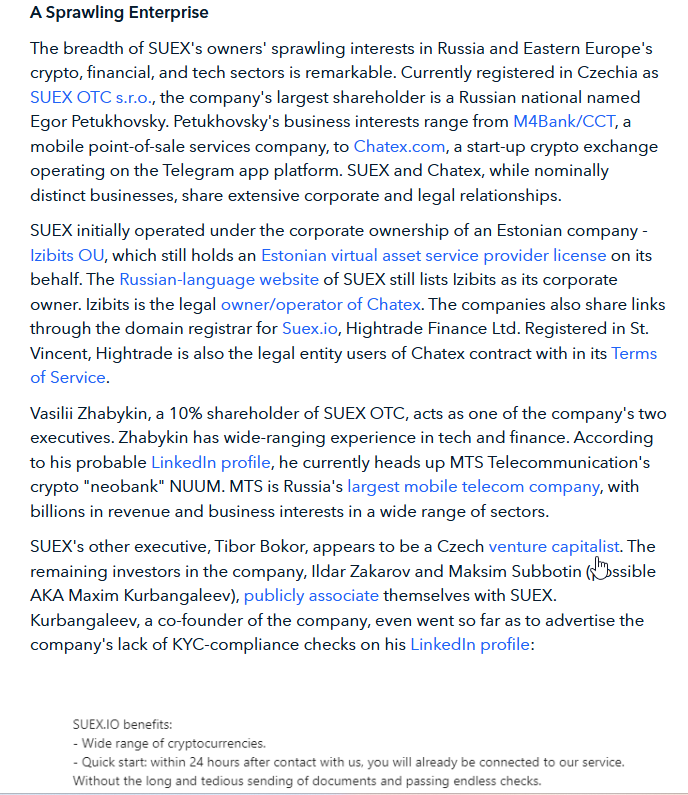


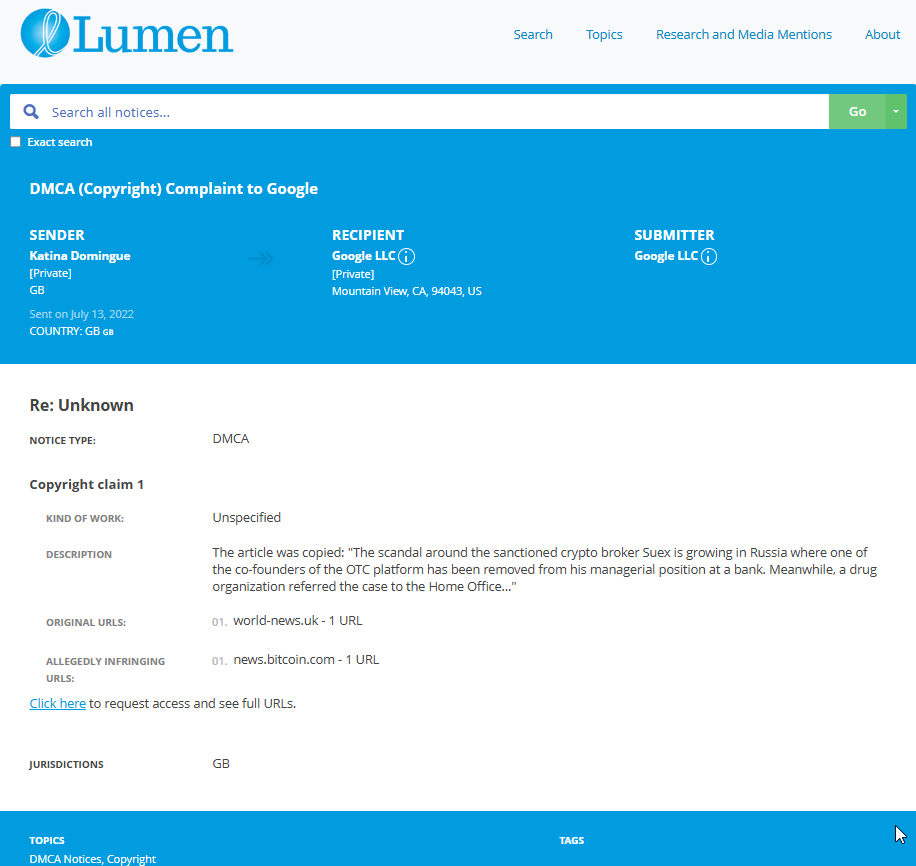
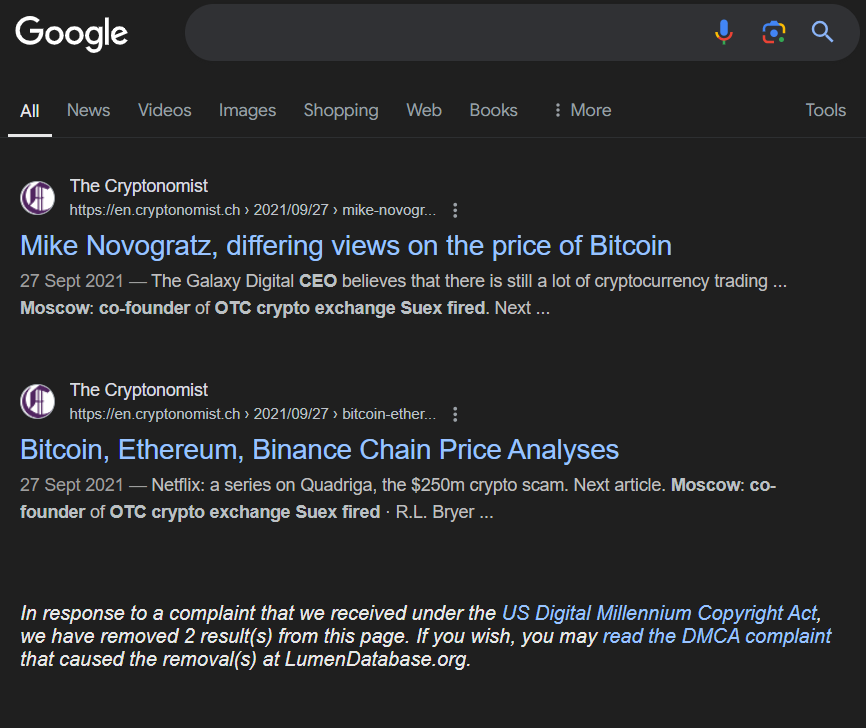
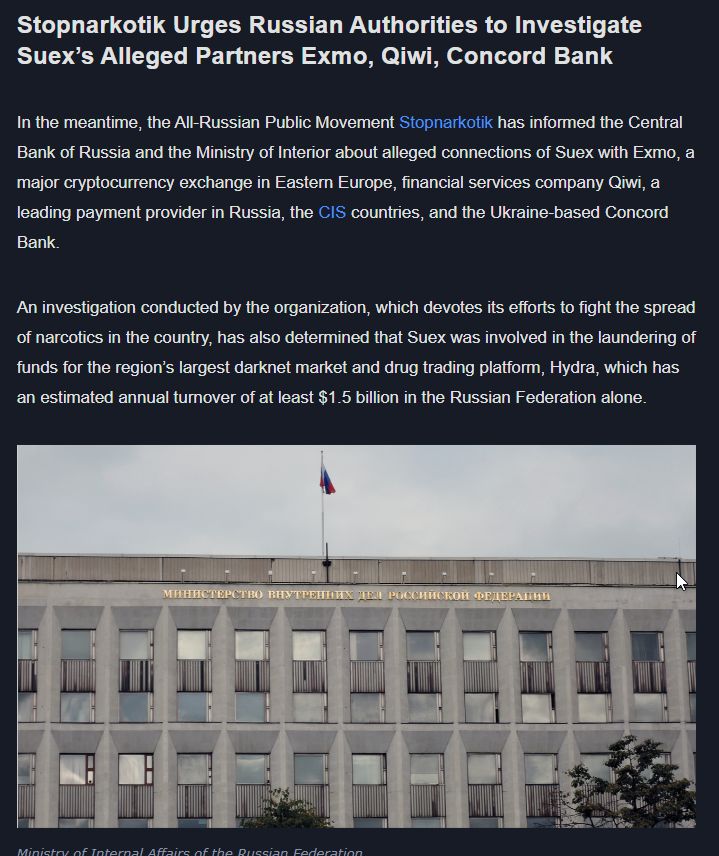
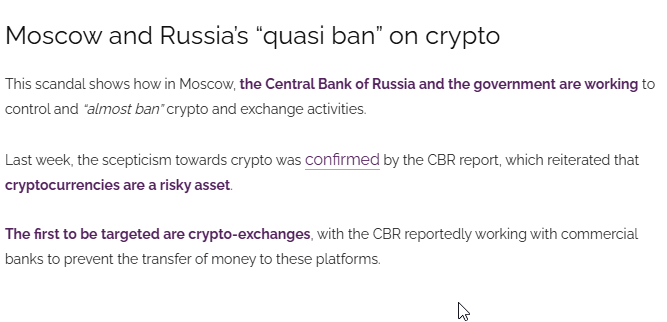
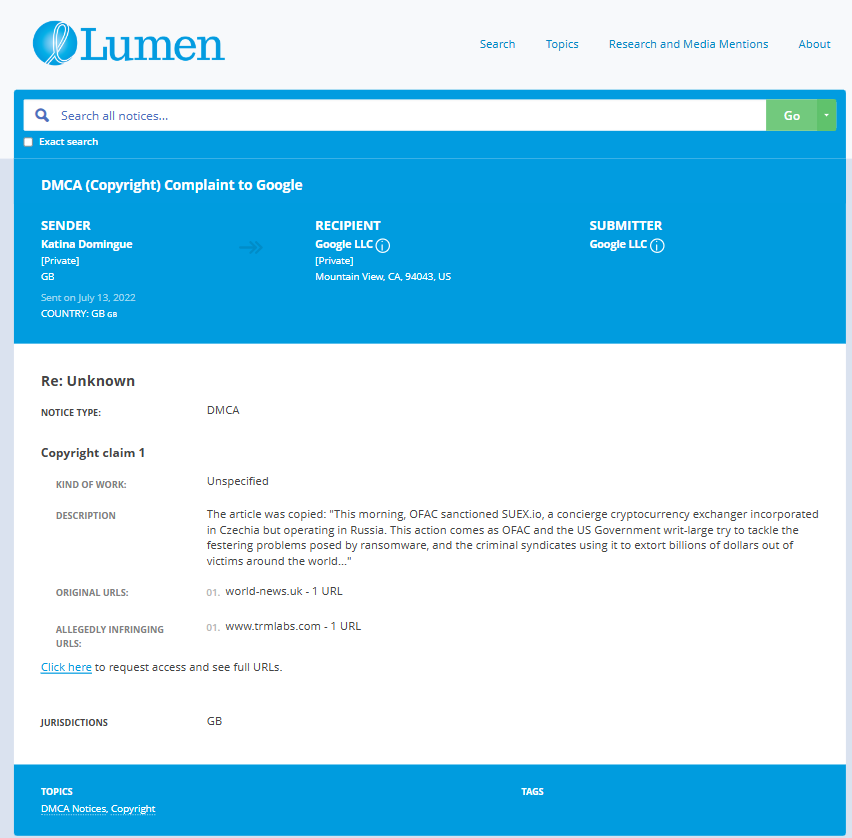
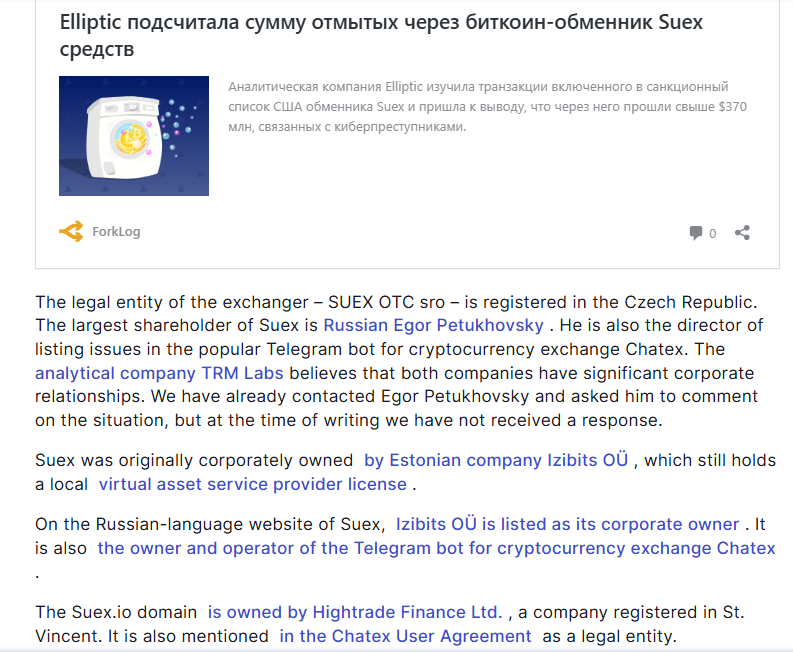
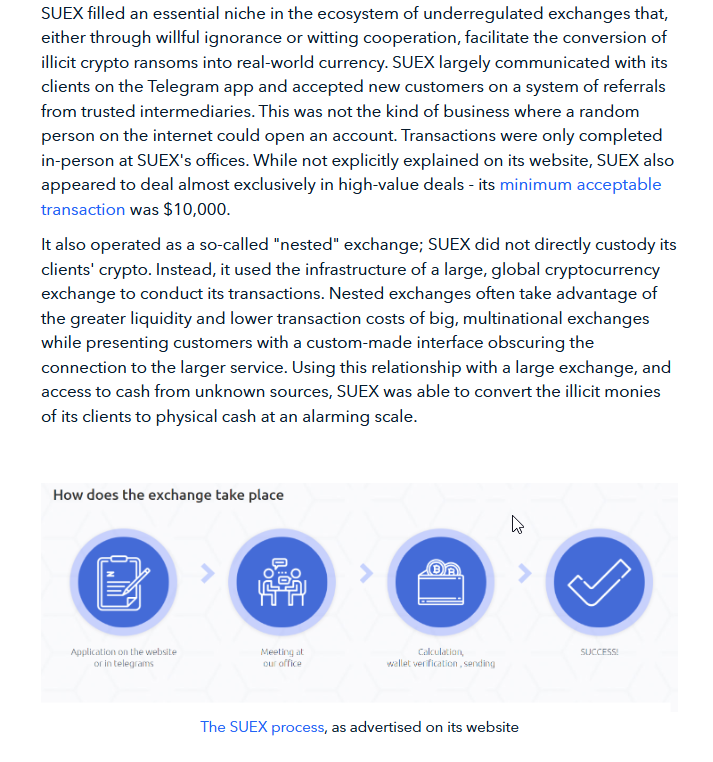
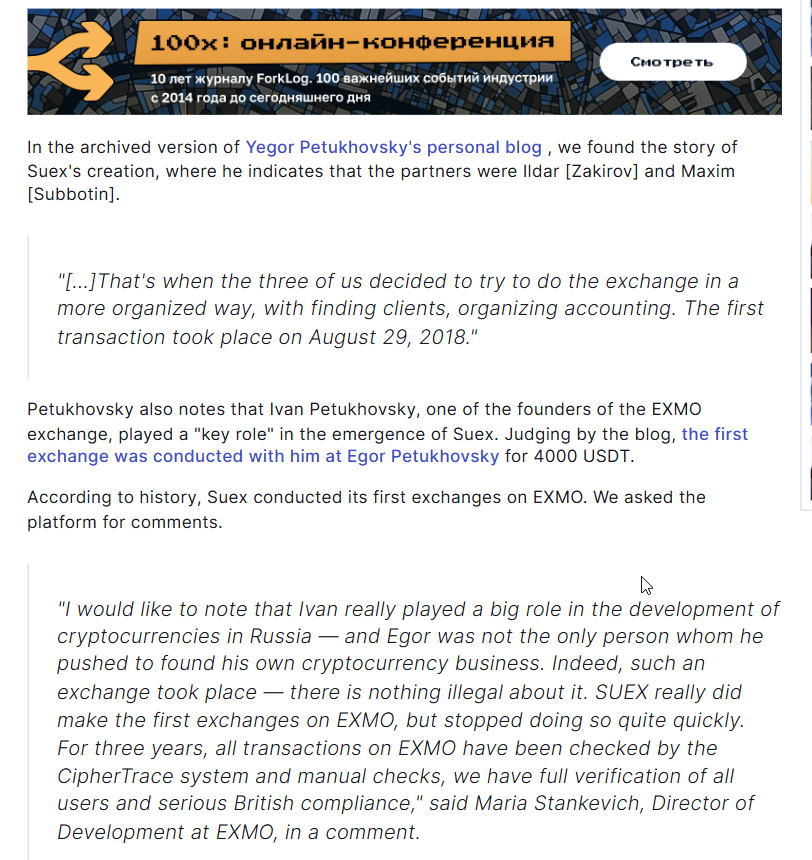

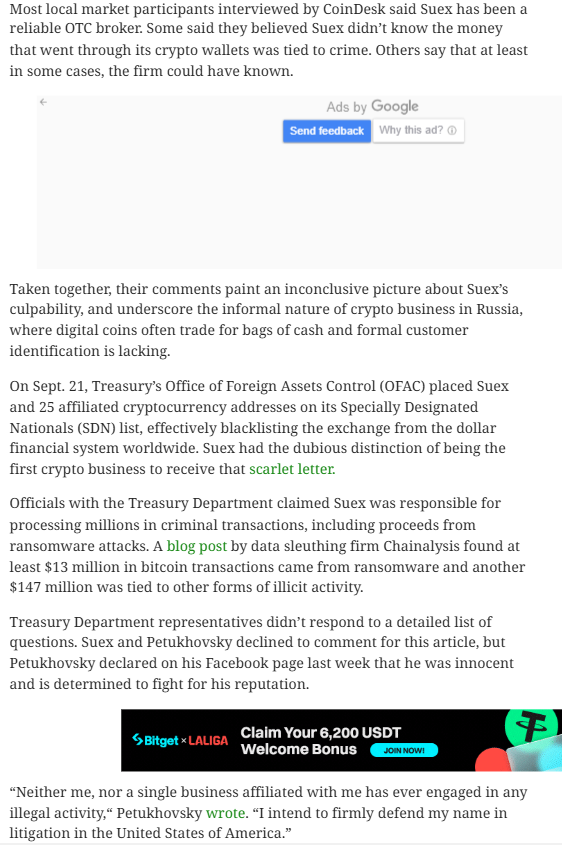
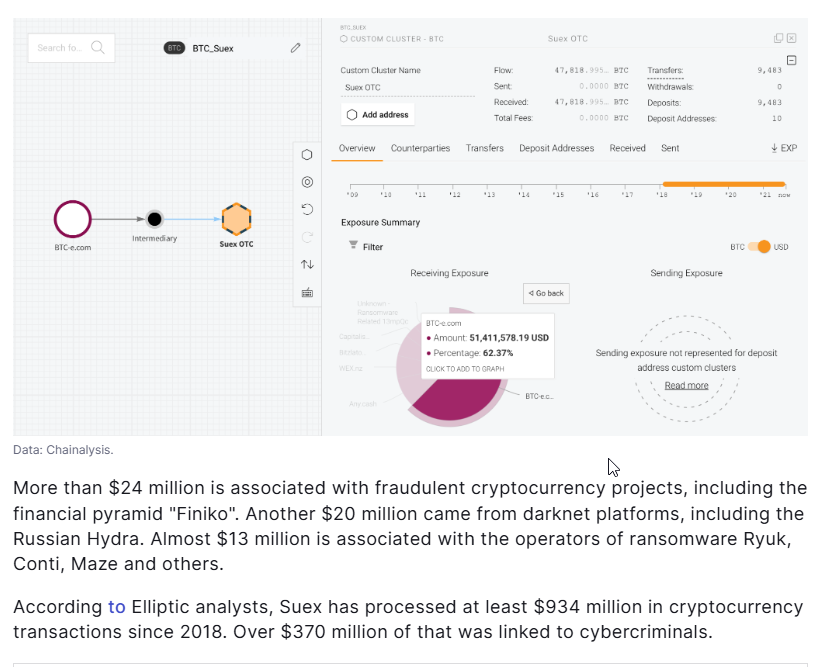
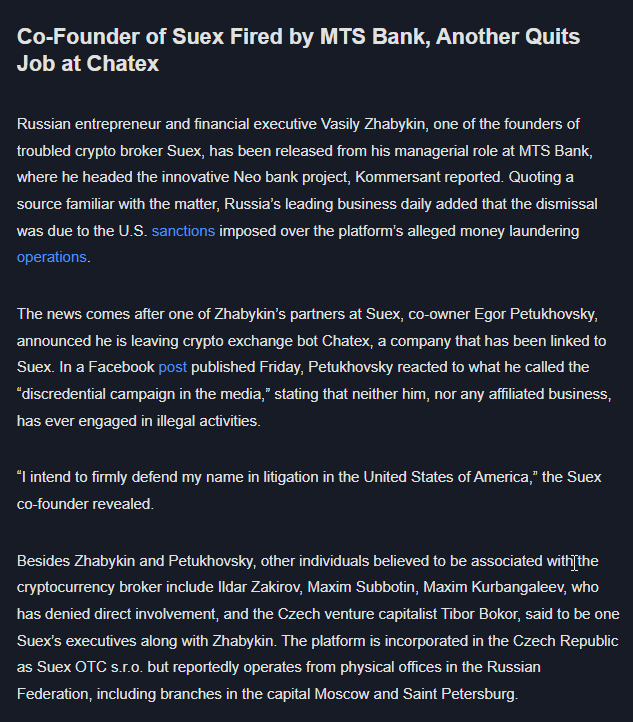
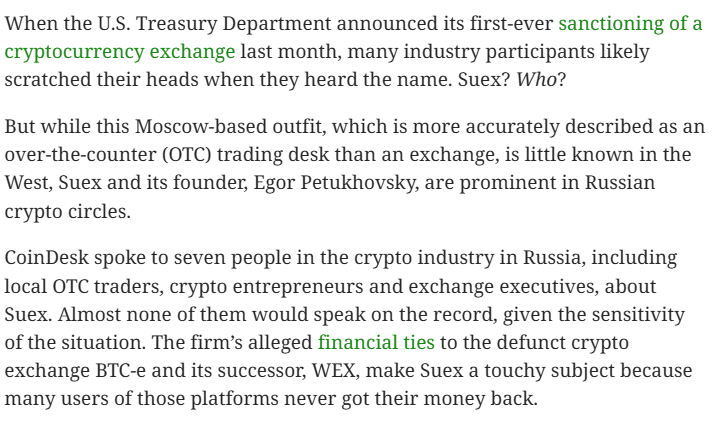
Targeted Content and Red Flags
gripeo.com
Vasily Zhabykin – Lawsuit of SUEX, Fraud & Money Laundering Cases.
- Adverse News
news.bitcoin.com
Co-Founder of Suex Fired by MTS Bank, Another Quits Job at Chatex
- Adverse News
intellinews.com
In a first, US sanctions Russian crypto exchange linked to ransomware
- Adverse News

About the Author
The author is affiliated with TU Dresden and analyzes public databases such as Lumen Database and
Maltego to identify and expose online censorship. In his personal capacity, he and his
team have been actively investigating and reporting on organized crime related
to fraudulent copyright takedown schemes.
Additionally, his team provides
advisory services to major law firms and is frequently consulted on matters
pertaining to intellectual property law.
Escalate This Case


Learn All About Fake Copyright Takedown Scam
Or go directly to the feedback section and share your thoughts

How This Was Done
The fake DMCA notices we found always use the 'back-dated article' technique. With this technique, the wrongful notice sender (or copier) creates a copy of a 'true original' article and back-dates it, creating a 'fake original' article (a copy of the true original) that, at first glance, appears to have been published before the true original

What Happens Next?
Based on the feedback, information, and requests received from all relevant parties, our team will formally notify the affected party of the alleged infringement. Following a thorough review, we will submit a counter-notice to reinstate any link that has been removed by Google, in accordance with applicable legal provisions. Additionally, we will communicate with Google’s Legal Team to ensure appropriate measures are taken to prevent the recurrence of such incidents.


You are Never Alone in Your Fight.
Generate public support against the ones who wronged you!




Recent Investigations
Josh Macciello
Investigation Ongoing
Christopher Sterlacci
Investigation Ongoing
Maksym Shkil
Investigation Ongoing
User Reviews
Average Ratings
0
Based on 0 ratings
Website Reviews
Stop fraud before it happens with unbeatable speed, scale, depth, and breadth.
Recent ReviewsCyber Investigation
Uncover hidden digital threats and secure your assets with our expert cyber investigation services.
Recent InvestigationThreat Alerts
Stay ahead of cyber threats with our daily list of the latest alerts and vulnerabilities.
Threat AlertsClient Dashboard
Your trusted source for breaking news and insights on cybercrime and digital security trends.
Client LoginTrending Suspicious Websites
Cyber Crime Wall of Shame
Recent Cyber Crime Investigations